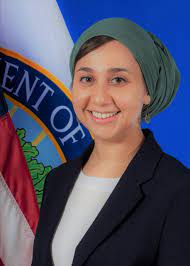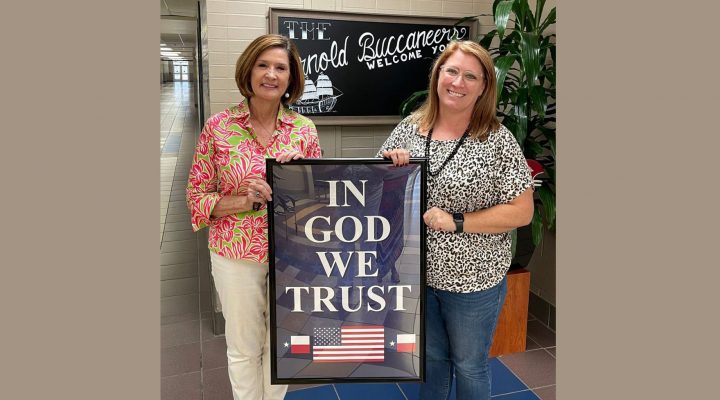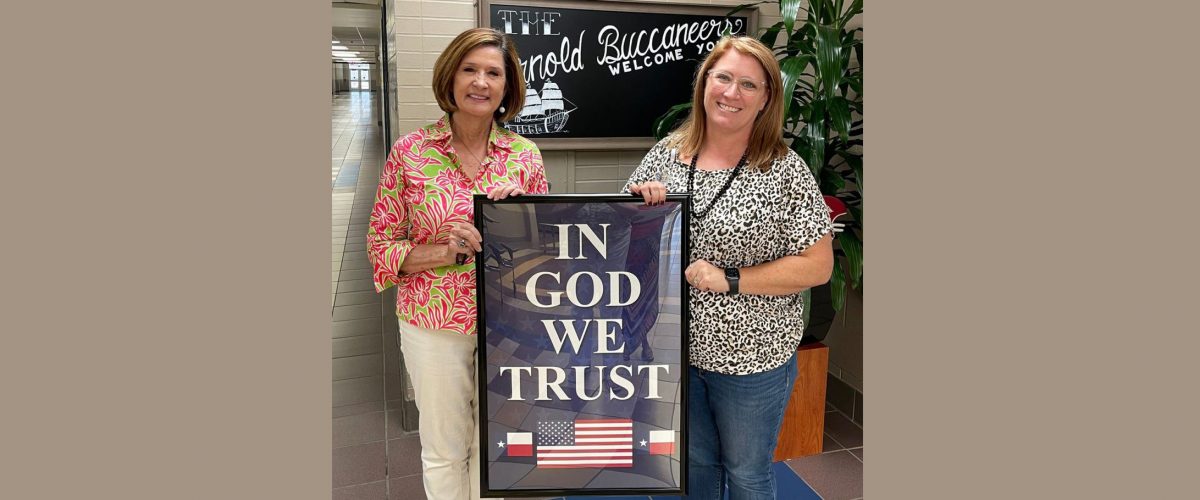Multi-state campaigns to legislate prayer and Bible study in public schools seek to undermine freedom of religion and to make non-Christians feel like second-class citizens, Brian Kaylor said during a webinar hosted by Christians Against Christian Nationalism.
Other efforts — which already have become law in some states — include mandating schools to post “In God We Trust” signs prominently in common areas, said Kaylor, a Baptist minister and president and editor of Word&Way.
“This type of legislation sends a dangerous message to our school children that if you’re not a Christian, or if you’re not in a narrow slice of conservative Christianity, that you’re not necessarily a full American, you’re not necessarily a full citizen — perhaps you’re not even fully welcome in your own school,” Kaylor said. “And that is a tragic and horrific message to send to our school children.”

Maggie Siddiqi
Maggie Siddiqi, director of the U.S. Department of Education’s Center for Faith-Based and Neighborhood Partnerships, joined Kaylor on the Feb. 23 podcast. Amanda Tyler, executive director of the Baptist Joint Committee for Religious Liberty and lead organizer of Christians Against Christian Nationalism, moderated the discussion, titled “Advancing religious freedom in public schools.”
Copy-and-paste legislation
Kaylor identified the Project Blitz coalition as the force behind many of the legislative efforts to promote Christian nationalism in American schools.
While the group recently rebranded itself, it continues to operate behind the scenes in many statehouses, Kaylor said, noting: “They create model legislation for lawmakers to literally just copy, paste and file. So, a lot of these bills look very similar because they (legislators) don’t even have to write the bill themselves.”
Attempts to introduce Bible reading into curricula often are framed as the study of literature or history.
But they and others who want to transform public schools into conservative Christian strongholds rarely are transparent about their intentions. For example, attempts to introduce Bible reading into curricula often are framed as the study of literature or history, he said.
“But when you really pay attention to what they’re saying about the bills, you recognize it’s not really about history,” he explained. “It’s not really about good literature. It is about teaching the Bible as a conservative Christian document to push a very particular, narrow view of Christianity. … So, you recognize that they really do have a sectarian religious agenda here to undermine the pluralism of our public schools, and that’s what’s going on.”
Christian nationalism strategies

Brian Kaylor
Other means of introducing Christian nationalism in the schools include book bans, school board takeovers and prohibitions of teaching about racial and LGBTQ issues, he said.
“These are efforts to take a very narrow slice of Christianity and to bar public schools from teaching actual American history and from truly helping and serving all the children in their schools. And all of this is being done in the name of Christianity,” he reported.
Siddiqi noted the desire to introduce Christian nationalism into public schools goes hand-in-hand with other troubling social movements.
“There’s some dangerous overlap between those who are seeking to create an America that excludes those with minority religious affiliations and those who are seeking to exclude communities of color,” she said. “These are not separate conversations, and the recent rise in anti-Semitism in this country is perhaps the most salient reminder of that.
“We cannot talk about religious freedom in public schools without addressing hate and hate-motivated violence.”
The federal government has introduced programs designed to help local school districts address bullying related to religious and racial status.
The federal government has introduced programs designed to help local school districts address bullying related to religious and racial status, Siddiqi said.
“The White House also announced an interagency policy committee on anti-Semitism, Islamophobia and related forms of discrimination and bias,” she said. “Our first order of business under this committee is to develop a national strategy to counter anti-Semitism.”
At the school district level, that translates into incentives promoting healthy learning environments that include the prevention of bullying motivated by racial and religious differences, she said.
One of those efforts is the promotion of religious literacy, she said. “Religious literacy is also critical to guarding against bullying and hate that is born of ignorance about religious difference.”
Literacy vs. instruction
But religious literacy must be distinguished from religious instruction, Siddiqi added.
“We’re talking about teaching about religion, not teaching religion,” she explained. “It’s an understanding of the religious diversity of our communities around us and cultivating this respect for religious pluralism.
“It’s really about making sure that students are able to really understand the world around them and understand the diversity in the communities around them and have the skills with which to do that work.”
Related articles:
Amanda Tyler testifies before Congress about Christian nationalism
Five takeaways from the Report on Christian Nationalism and January 6
Interdenominational panel warns of extreme danger of Christian nationalism
Measure your political against the life and witness of Jesus, Bishop Curry advises


